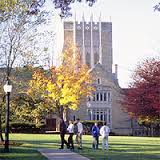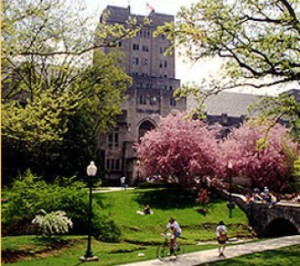Searching for that Perfect College? 0
 The perfect college doesn’t exist. Almost any college, whether it’s an Ivy or a local community college, can be the foundation for productive and enjoyable college years. Every student’s experience has its ups and downs. Your parents may know what I mean. With colleges putting so much effort into diversification in recent years, few students fit the cookie-cutter images that proliferate in college view books.
The perfect college doesn’t exist. Almost any college, whether it’s an Ivy or a local community college, can be the foundation for productive and enjoyable college years. Every student’s experience has its ups and downs. Your parents may know what I mean. With colleges putting so much effort into diversification in recent years, few students fit the cookie-cutter images that proliferate in college view books.
Like with most things in life, college is what you make of it. If you are determined to study hard and find your social niche, you will probably be happy no matter what school you attend. However, that does not mean you can just throw darts at a map listing all colleges coast to coast. But it is always fun to put a pin on our office wall map when a student matriculates to a college he or she never knew existed until they went through the process I describe below. With hundreds of colleges to choose from, there will be some that fit better than others. But I have found that many students start the process without paying much attention to the purpose of going to college in the first place.
Fortunately, that can be easily rectified with some self-assessment by the student. In other words, you start the process with a careful look at yourself, not with a list of colleges. It is your own honest assessment of your academic profile, interests, learning style, and natural strengths that is central to finding a good fit college.
Most students start their lists, not only by listing well-known schools but the most competitive first. It is a faulty strategy. Before you start poring over view books and catalogs from colleges, you want to examine yourself as a person and as a student. Such an appraisal will yield data about yourself that will allow you to move forward with confidence.

So, once that is all done you can consider other things, like location, total enrollment, male to female ratio, and athletics. Do you want a college within easy driving distance to home or across the country? Many students feel both callings at one time and another. Going to a college in the same state can still provide the independence and freedom students crave if they don’t commute. If you do not plan to be going home often, however, beware of the suitcase school, where the majority of students are locals who split the campus on the weekends.
The current health care concerns based on a “novel” strain of the common Coronavirus called Covid 19 has many people concerned about how far away from home to go college. However, if you are willing to go over 300 miles from home, your pool of prospective schools will grow significantly, not to mention chances of admission may be enhanced as well. That is, if you show some genuine measure of demonstrated interest.
By the way, do NOT dismiss a college without doing your AAA due diligence simply because it has fewer students than your high school. In college, you will likely have peers from all over the country and many countries, unlike your little community of students whom you have known most of your life. It is a big world and your journey has just begun. No better place to do it than within a community where you can learn from both professors as well as fellow undergrads that come from different parts of the globe. Each of you can share ideas and experiences that will be mutually beneficial.
